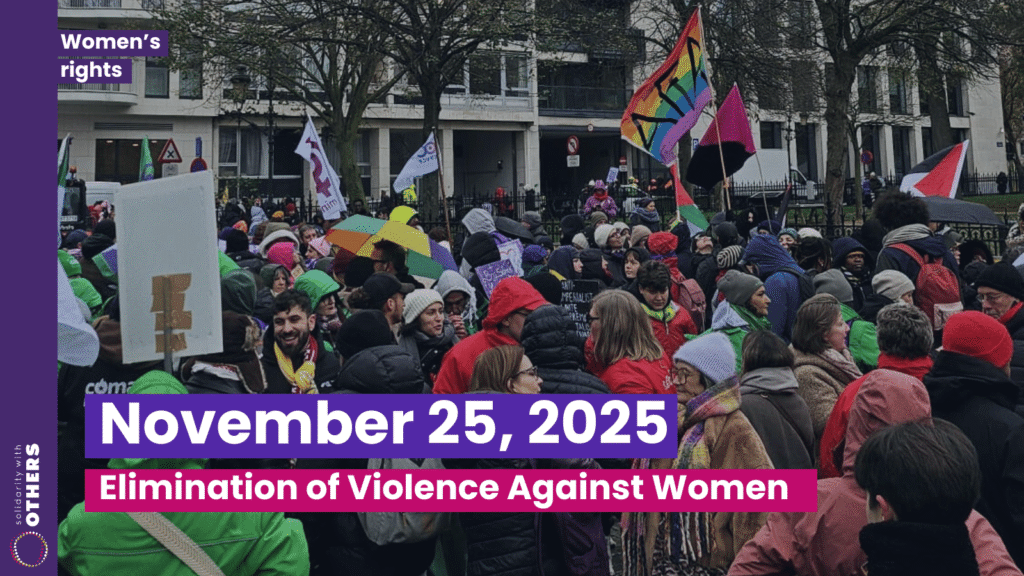A Practical Guide for Migrant and Refugee Women
In Belgium, all women—regardless of migration status, ethnicity, religion, or background—are entitled to fundamental rights and protections. This guide aims to make these rights accessible and actionable, especially for migrant and refugee women who may face additional and intersecting barriers. It outlines key legal frameworks, available services, and steps to take when rights are denied or violated.
1. Equal Protection Under the Law
Belgium is bound by both national and international legal standards that prohibit discrimination and promote gender equality.
Key frameworks include:
- The Belgian Constitution (Articles 10 & 11), which guarantees equality before the law
- The Gender Equality Act (2007), which prohibits gender-based discrimination
- The European Convention on Human Rights and EU Gender Directives, which ensure protection regardless of status
Discrimination based on gender, pregnancy, ethnicity, nationality, religion, sexual orientation, disability, or legal status is prohibited.
2. Gender Equality in Work and Public Life
Women in Belgium have the right to equal participation in economic, political, and social life.
Key protections include:
- The right to equal pay for equal work
- Access to maternity and parental leave
- Legal protections against workplace harassment and exploitation
- Electoral quotas requiring a minimum of 33% women candidates on party lists, to promote political representation
Migrant women may face additional challenges such as language barriers, informal labour arrangements, or legal insecurity. These do not diminish your rights.
3. Protection from Gender-Based Violence
Belgium recognizes gender-based violence (GBV) as a serious human rights violation.
This includes:
- Domestic and intimate partner violence
- Sexual assault and rape
- Psychological and economic abuse
- Forced marriage, FGM, and honor-based violence
- Stalking and online harassment
Survivors—regardless of legal status—are entitled to:
- Immediate protection and shelter
- Legal and psychological support
- Medical care
- Access to Sexual Assault Care Centres (SACCs)
In 2023, Belgium formally recognized femicide in national legislation, reinforcing its commitment to ending violence against women.
4. Access to Social Rights and Services
All women in Belgium, including undocumented migrants and asylum seekers, have access to certain essential services:
- Healthcare: Emergency and primary care, reproductive health, and mental health services
- Education: Compulsory schooling for all children until age 18, regardless of legal status
- Social support: Through Public Social Welfare Centres (CPAS/OCMW), including housing, food, and integration assistance
- Legal aid: Access to free legal assistance through the pro deo system
Support may vary depending on region and residence status, but basic human rights remain non-negotiable.
5. Reporting Rights Violations and Discrimination
If your rights are violated, you have the right to report and seek redress.
Relevant institutions include:
- UNIA (Interfederal Centre for Equal Opportunities)
Handles complaints related to discrimination based on race, religion, nationality, legal status, and more.
0800 12 800 | www.unia.be - Institute for the Equality of Women and Men (IEFH)
Focuses on gender discrimination, harassment, and inequality.
www.igvm-iefh.belgium.be
Complaints can be filed online, by phone, or through support organizations. Legal support is available and confidentiality is guaranteed.
6. Asylum and Protection Based on Gender
Belgian asylum law acknowledges that women may flee persecution specifically related to gender.
This includes:
- Sexual or domestic violence
- Forced marriage or pregnancy
- Female genital mutilation (FGM)
- Persecution due to sexual orientation or gender identity
Women have the right to submit individual asylum claims separate from their spouses or family members. Legal and psychological support is available throughout the asylum process.
Need Help?
We recommend contacting the following organizations for support:
Service | Organization | Contact |
Legal Support | UNIA / IEFH | 0800 12 800 / online forms |
GBV & Safe Housing | CAW Brussels / Maison d’Accueil | 078 150 300 / www.caw.be |
Sexual Assault Crisis Response | SACC (UMC St Pierre, Brussels) | 02 535 45 42 / sac.belgium.be |
FGM & Cultural Support | GAMS Belgium | 02 219 43 40 / www.gams.be |
Healthcare Access | Médecins du Monde | www.medecinsdumonde.be |




